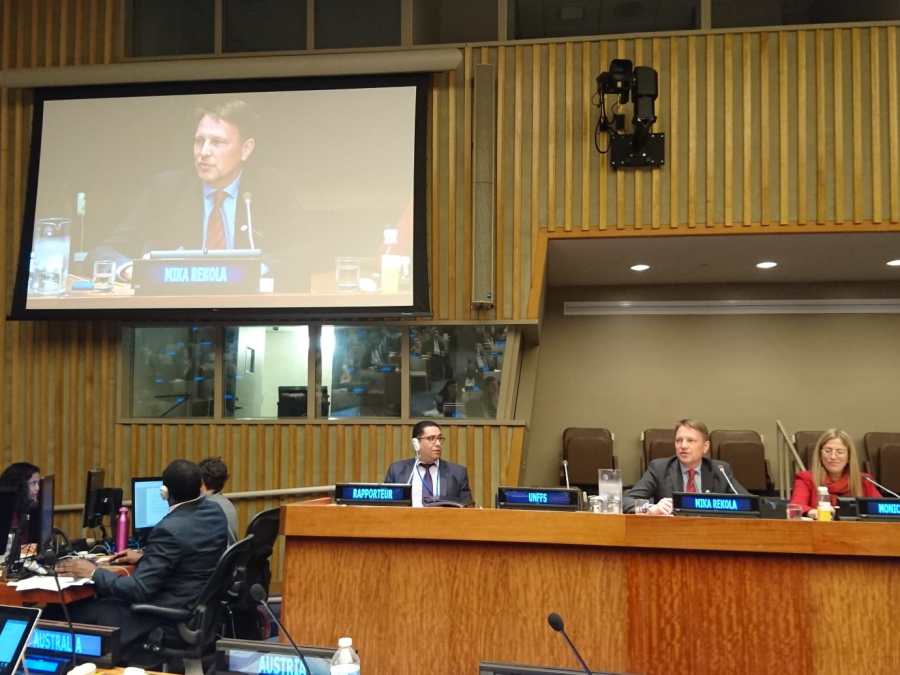Forest Education Needed in all Schools Around the World
NOTE: This text is reblogged without any changes from the Joint IUFRO-IFSA Task Force on Forest Education blog post “Forest Education Needed in all Schools Around the World” at https://foresteducation.wordpress.com/2019/05/10/forest-education-needed-in-all-schools-around-the-world/.

Dr. Mika Rekola, representing the University of Helsinki and IUFRO, was featured on a panel discussion where he presented his background paper co-authored by Dr. Monica Gabay. The paper highlighted three key messages.
- Educators need help on the “What” and “How” of Forests: This support can be supplied together with forest professionals and education start-ups. There is need to provide updated content and engaging methods of delivery to provide teachers the tools to engage students and all levels, while teachers themselves are also in need of trainings on key subject areas.
- Forest sector cooperation is a key for intervention: The forest sector is small, consisting less than one percent of working force and production in most countries. Therefore to reach all levels of education and schools all around the world will be reliant on aligning its efforts. It will only possible through enhanced collaborative efforts and partnerships at all levels.
- Research and development of forest education itself is paramount: Forests are a dynamic resource with long time horizons, which need to adapt to the needs of the economy and society. Continuous research and updating of educational curricula is paramount and could provide new insights to practical teaching methods. Research has, for instance, shown that engaging in outdoor-based forest and nature education can extend the positive effect on children’s learning of other various subjects, such as math. Research and development of forest education also needs to include typical networking and knowledge-sharing institutions, especially through fora such as international congresses on education and publishing opportunities in peer reviewed scientific journal(s).
Further information: Dr. Mika Rekola, mika.rekola@helsinki.fi, +358 40 5633 509

Posted by Nindhita Yusvantika on
Interesting and useful article. Some students from Airlangga University, Indonesia also carried out activities such as studying with nature with children so that they understood the importance of the existence of forests and protecting the natural environment. For a more complete article I will share the article link below. Happy reading, hopefully useful.
http://news.unair.ac.id/en/2018/09/07/learning-nature-build-awareness-maintaining-environment/
Thank you